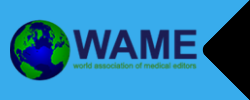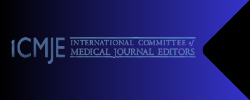The Effect of Breast Milk and Breastfeeding Education Given to Prenatal Mothers on Postnatal Breastfeeding Behaviors and Attitudes
Research Article
DOI:
https://doi.org/10.5281/zenodo.17068147Keywords:
Breast Milk, Breastfeeding, EducationAbstract
Introduction: Antenatal breastfeeding education plays a crucial role in positively shaping mothers' postnatal attitudes and practices, thereby promoting sustained breastfeeding and enhancing neonatal health outcomes.
Objective: This study aimed to evaluate the effects of breast milk and breastfeeding education provided to antenatal mothers on their postnatal breastfeeding behaviors and attitudes.
Methods: A descriptive and cross-sectional study was conducted at the Department of Obstetrics and Gynecology at Ankara University Cebeci Research and Practice Hospital between August 2021 and August 2023. In the study, data were collected from 199 mothers who gave birth at 36 weeks or more in the Obstetrics and Gynecology clinic, who were not separated from their babies for any reason after birth, who did not have any health problems that could prevent breastfeeding, and who agreed to participate in the study, using the Descriptive Characteristics Form, the Effects of Breast Milk and Breastfeeding Education on Postpartum Breastfeeding Behaviors Form, and the Breastfeeding Attitude Assessment Scale questionnaires 6 months after birth. Descriptive analysis, one-way ANOVA test, and independent groups t-test were used for statistical analysis.
Results: Among the 199 mothers, 100 received prenatal education on breastfeeding, while 99 did not. Notably, 97% of mothers who received training planned to breastfeed for over two years, compared to only 8.1% of those without training (p<0.01). Additionally, the average score on the breastfeeding attitude scale was significantly higher in the educated group (132.14±8.42) than in the uneducated group (68.28±10.85) (p<0.01).
Conclusion: It was found that mothers who received antenatal breast milk and breastfeeding education had better postnatal breastfeeding attitudes and breastfed longer than mothers who did not receive education. There was no difference in duration of first breastfeeding or duration of first skin-to-skin contact between mothers who received education and those who did not.
References
Tetik K, B. Current Information on Breast Milk and Breastfeeding Counseling. Ankara Med J. 2016;16:115-118.
World Health Organization. Infant and Young Child Nutrition. https://iris.who.int/bitstream/handle/10665/44117/9789241597494_eng.pdf? Publication Date 2009. Access Date: 16 December 2024.
Alb CH, Theall K, Jacobs MB, Bales A. Awareness of United States' Law for Nursing Mothers among Employers in New Orleans, Louisiana. Womens Health Issues. 2017;27(1):14-20.
Darwent KL, McInnes RJ, Swanson V. Infant Feeding Pedigrees: A tool to explore family infant feeding history and identify support needs. BMC Pregnancy Birth. 2016; 16(1).
Bağci Bosi AT. Infant nutrition-breast milk. Güler Ç, Akın L, editors. Public Health Basic Information Volume III. Updated 2nd Edition. Ankara: Hacettepe University Publications;2012. p.1273-90.
Hacettepe University Institute of Population Studies. 2018 Turkey Population and Health Survey. Available from: https://hips.hacettepe.edu.tr/tr/2018_turkiye_nufus_ve_saglik_arastirmasi-55. Publication Date 2019. Access Date 24.Aralık.2024.
World Health Organization, UNICEF. Global Strategy for Infant and Young Child Feeding. Geneva: World Health Organization; 2003.
Giray H. Breastfeeding. TMA J Contin Med Educ. 2004;13(1):12-5.
Onbaşı Ş, Duran R, Çiftdemir NA, Vatansever Ü, Acunaş B, Süt N. The effect of breastfeeding and breast milk education given to prenatal mothers on breastfeeding behaviors. Türk Pediatri Ars. 2011;46(1):75-80. Available from: https://doi.org/10.4274/tpa.46.13
Froozani MD, Permehzadeh K, Motlagh AR, et al. Effect of breastfeeding education on the feeding pattern and health of infants in their first 4 months in the Islamic Republic of Iran. Bull World Health Organ. 1999;77(5):381-5.
Aidam BA, Pérez-Escamilla R, Lartey A. Lactation counseling increases exclusive breast-feeding rates in Ghana. J Nutr. 2005 Jul;135(7):1691-5.
Gundogan BD. Evaluation of information, practices and processes related to breastfeeding of breastfeeding mothers. Demiroglu Bilim University; PhD Thesis, 2013.
Akbayram HT, Şahin HA. Prenatal breastfeeding education in Turkish women: how are its effects? Turk J Family Med Prim Care. 2019;13(2):183-90. Available from: https://doi.org/10.21763/tjfmpc.569762
Güldür A. Evaluation of breastfeeding related behaviors and breastfeeding self-efficacy of mothers who received and did not receive breastfeeding education at pregnancy school [Master's Thesis]. Ankara: Okan University; 2016.
Özkan E. Evaluation of the knowledge of newly delivered mothers in breast milk performance and scoring the contribution of the training given by the Certificate of Achievement with the scores of mothers ]Master's Thesis].İstanbul: Istanbul Medipol University; 2017.
Aylyyeva G. For healthy generations: the effects of breastfeeding counseling given to mothers in the postpartum period on breastfeeding performance [Master's Thesis]. Samsun: Ondokuz Mayıs University; 2019.
Çalış A. Examination of the factors affecting mothers' breastfeeding self-efficacy and breastfeeding duration [Master's Thesis]. İzmir: Ege University; 2019.
Doğancı P. Thoughts and Behaviors of Mothers Regarding the Maintenance of Breastfeeding in Pregnancy [Master's Thesis]. Aydın:Adnan Menderes University; 2020.
Öztürk R. The Effects of Education Concerning Breast Milk and Breastfeeding DuringAntenatal Period on Breastfeeding Success and Breastfeeding Self-Efficacy [Master's Thesis]. Balıkesir: Balıkesir University; 2018.
Özkan HA. Breastfeeding Attitude Evaluation Scale. KASHED. 2015;2(1):53-58.
Downloads
Published
How to Cite
Issue
Section
License
Copyright (c) 2025 Acta Medica Ruha

This work is licensed under a Creative Commons Attribution 4.0 International License.









